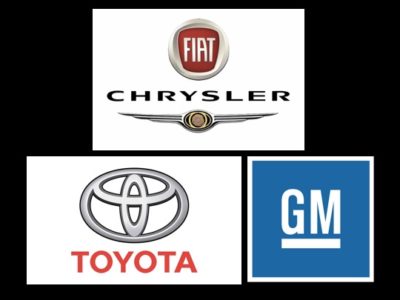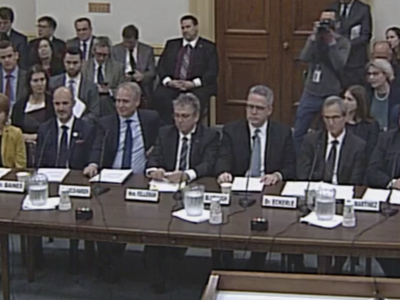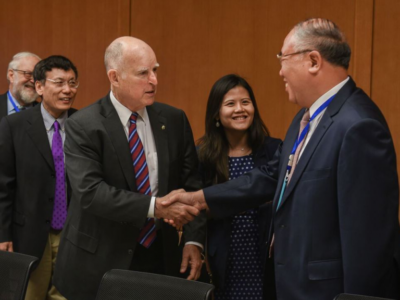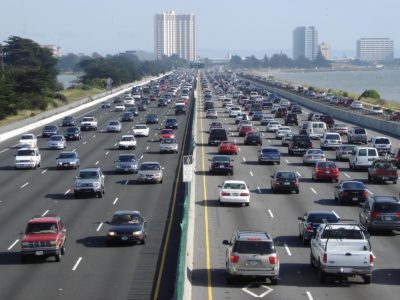Transportation
Toyota’s Defense of Its Choice to Support the Trump Administration’s Auto Standards Rollback Rings Hollow
Sadly, Toyota Has Ceded Its Place As the Industry’s Environmental Leader
My colleagues Ann, Cara, Julia, and Rick have all written about various aspects of the decision by General Motors, Toyota, and other automobile manufacturers to side with the Trump administration as it tries to prevent California from setting its own greenhouse gas emission standards. The administration is implementing this rollback in tandem with a federal …
CONTINUE READINGLet’s Commence an Economic Retaliation Initiative Against (Some) Automakers
Influencing Public Policy Through Individual & Collective Purchasing Decisions
At the risk of piling on, let me offer my own thoughts–and a specific proposal–regarding yesterday’s decision by General Motors, Fiat Chrysler, Toyota and the automakers’ trade organization to intervene in support of the Trump Administration in California’s recently-filed litigation challenging the feds’ attempted revocation of California’s Clean Air Act waiver. Legal Planet colleagues Ann …
Continue reading “Let’s Commence an Economic Retaliation Initiative Against (Some) Automakers”
CONTINUE READINGLet’s Get One Thing Straight
The waiver preemption lawsuit isn’t about one national fuel economy standard.
As Ann wrote yesterday, the Association of Global Automakers and the auto companies General Motors, Toyota, and Fiat Chrysler have stated their intent to intervene in pending litigation challenging the Trump administration’s rule to preempt California’s Advanced Clean Cars program, and any future tailpipe greenhouse gas (GHG) emissions standards the state and others might seek …
Continue reading “Let’s Get One Thing Straight”
CONTINUE READINGHow Can We Achieve a Carbon-Neutral Transportation Sector by 2050?
Developments from a hearing before the House Subcommittee on Environment and Climate Change
Today, the Subcommittee on Environment and Climate Change of the House Committee on Energy and Commerce held a hearing entitled “Building a 100 Percent Clean Economy: Solutions For Planes, Trains and Everything Beyond Automobiles.” As the title suggests, the Subcommittee’s hearing sought to probe opportunities to decarbonize the transportation sector while focusing on modes of …
Continue reading “How Can We Achieve a Carbon-Neutral Transportation Sector by 2050?”
CONTINUE READINGClosing Downtown Market Street to Cars Is a Step in the Right Direction
The San Francisco Municipal Transportation Agency voted yesterday to approve a plan banning private automobiles on the downtown stretch of Market Street east of 10th Street. This section, one of the city’s busiest, will only be accessible to Muni vehicles, taxis, bicycles, and pedestrians (cars will still be able to cross Market). Commercial loading will …
Continue reading “Closing Downtown Market Street to Cars Is a Step in the Right Direction”
CONTINUE READINGLA Metro’s Transit to Parks Strategic Plan
A beneficial but incomplete solution to address lack of access to open spaces for disadvantaged communities
I previously wrote about the potential to generate greater support for environmental initiatives, by improving community engagement with the natural environment. One mechanism to improve community engagement in this manner is quite simple: make it easier for people to access parks and open spaces by public transit. Access is a widespread issue in Los Angeles, …
Continue reading “LA Metro’s Transit to Parks Strategic Plan”
CONTINUE READINGLaunching the California-China Climate Institute
Welcoming a famous new faculty member and a critical new initiative.
I have two exciting announcements to make. The first is that Jerry Brown has accepted an appointment as visiting professor at the law school and the College of Natural Resources (CNR) at Berkeley. That appointment would be exciting enough. But it goes hand in hand with my other news: the public launch of the California-China …
Continue reading “Launching the California-China Climate Institute”
CONTINUE READINGWhy are automakers fighting Trump’s emissions rollback?
The answer may lie in the electric vehicle investments the industry is busy making
As we move ever deeper into an all-out legal war between California and the Trump Administration over rollbacks of automobile emissions standards (something Ann, Cara, and Julia have been covering very well), I want to explore in a little more depth why the automakers have been so resistant to Trump’s rollback efforts. The auto industry …
Continue reading “Why are automakers fighting Trump’s emissions rollback?”
CONTINUE READINGWelcome to the Next Phase of the Great California-Trump Car Wars
First lawsuit filed, more to come
California didn’t wait long to file its first court challenge to the rules just finalized by the Trump Administration related to California’s GHG and ZEV car emissions standards (discussed here and here by Julia and Ann). Here’s the complaint filed by California together with 23 other states, along with the cities of LA and NY. …
Continue reading “Welcome to the Next Phase of the Great California-Trump Car Wars”
CONTINUE READINGTrump Announces Waiver Rollback on Twitter
Revoking California’s Clean Air Act Waiver Is Bad Policy and Legally Indefensible
This post was originally published on the American Constitution Society’s Expert Forum on September 18, 2019. President Trump announced the revocation on Twitter this morning. It’s not news that the Trump administration has been planning, via its so-called SAFE Rule, to freeze Obama-era fuel economy standards, roll back tailpipe greenhouse gas (GHG) emissions standards, and …
Continue reading “Trump Announces Waiver Rollback on Twitter”
CONTINUE READING









